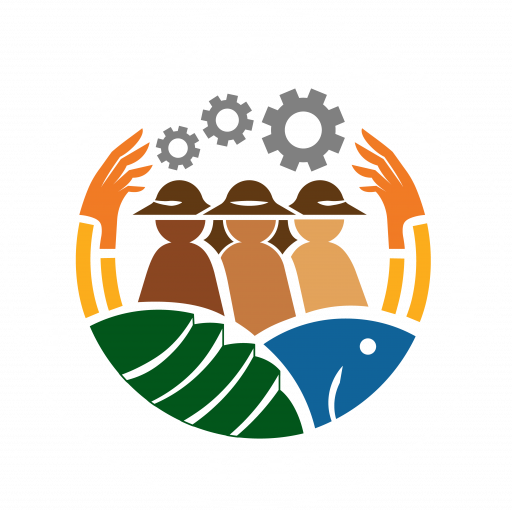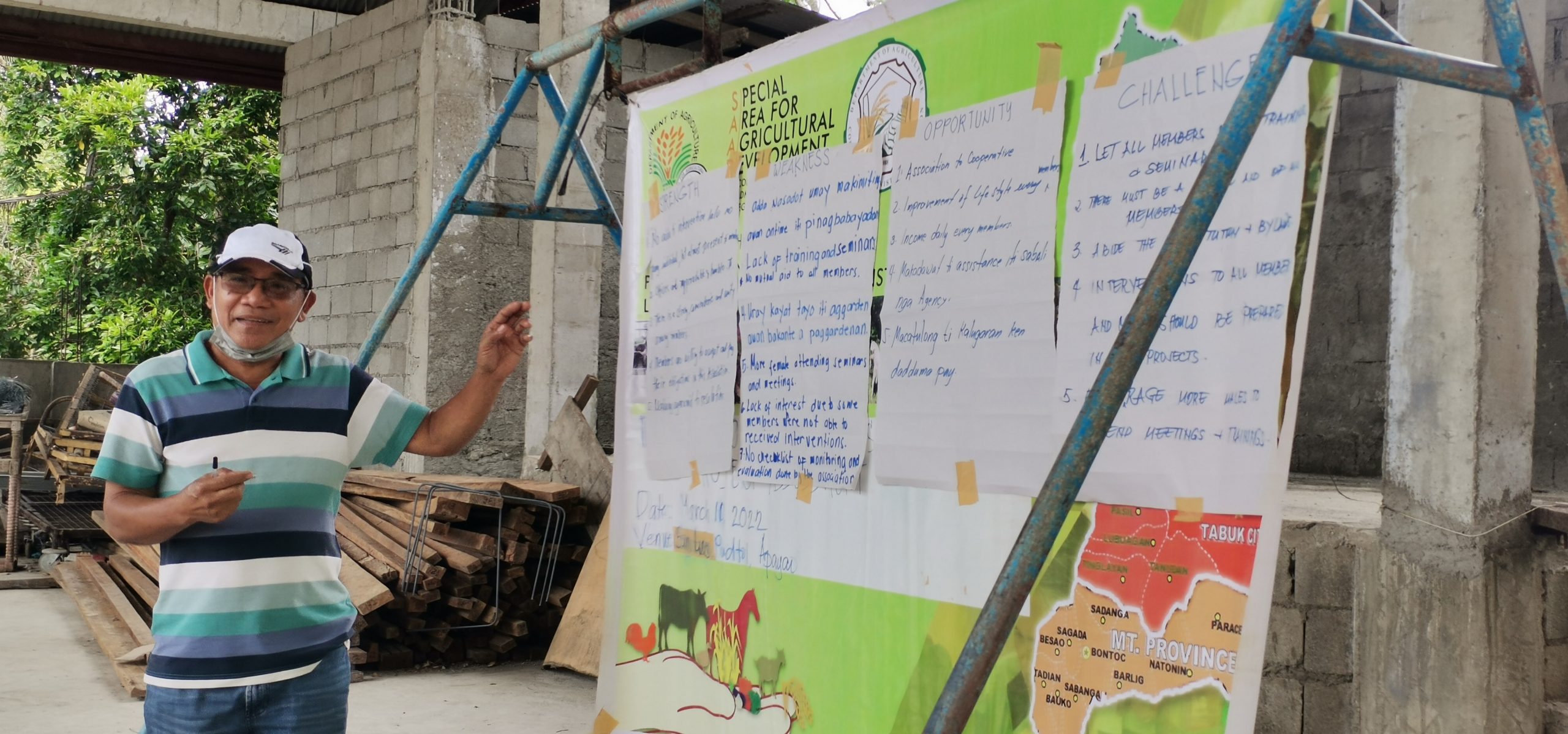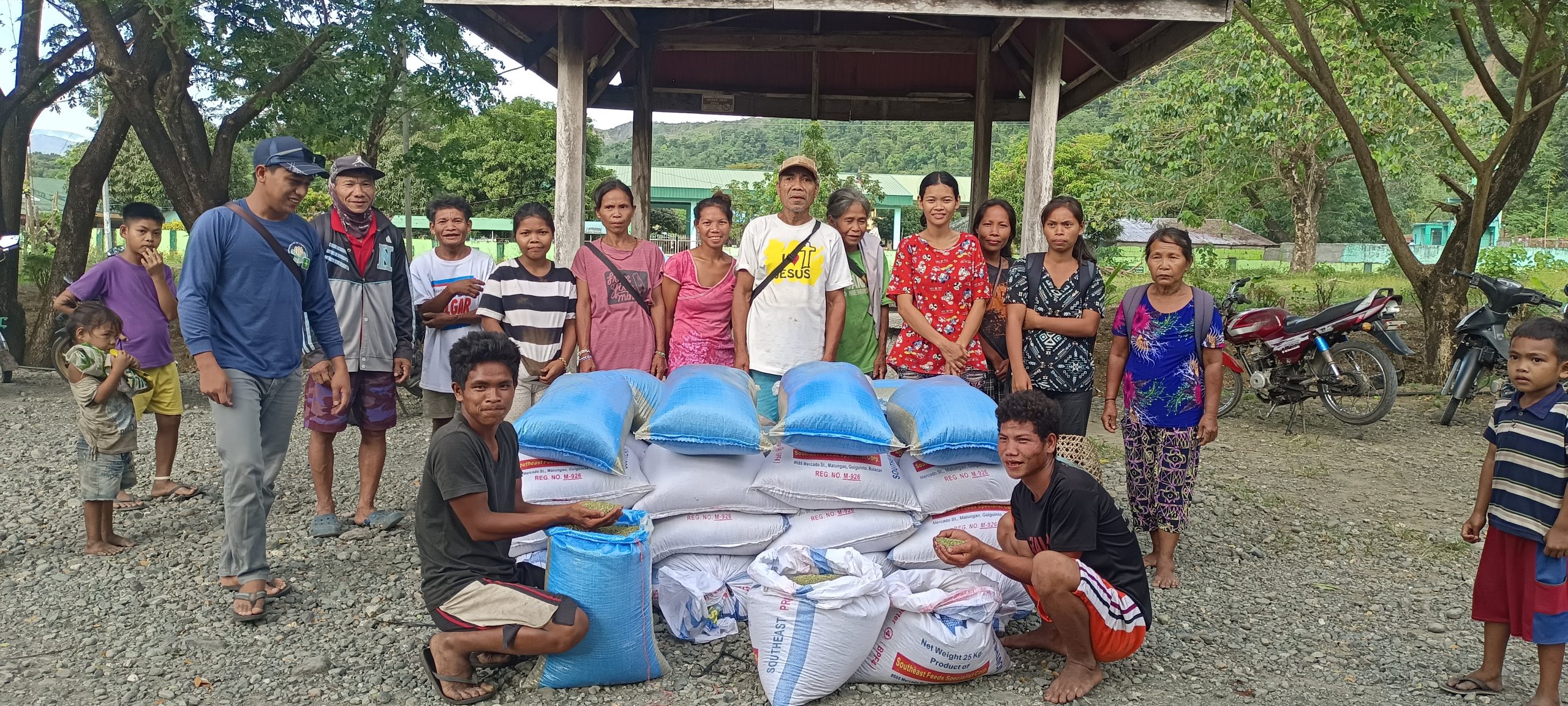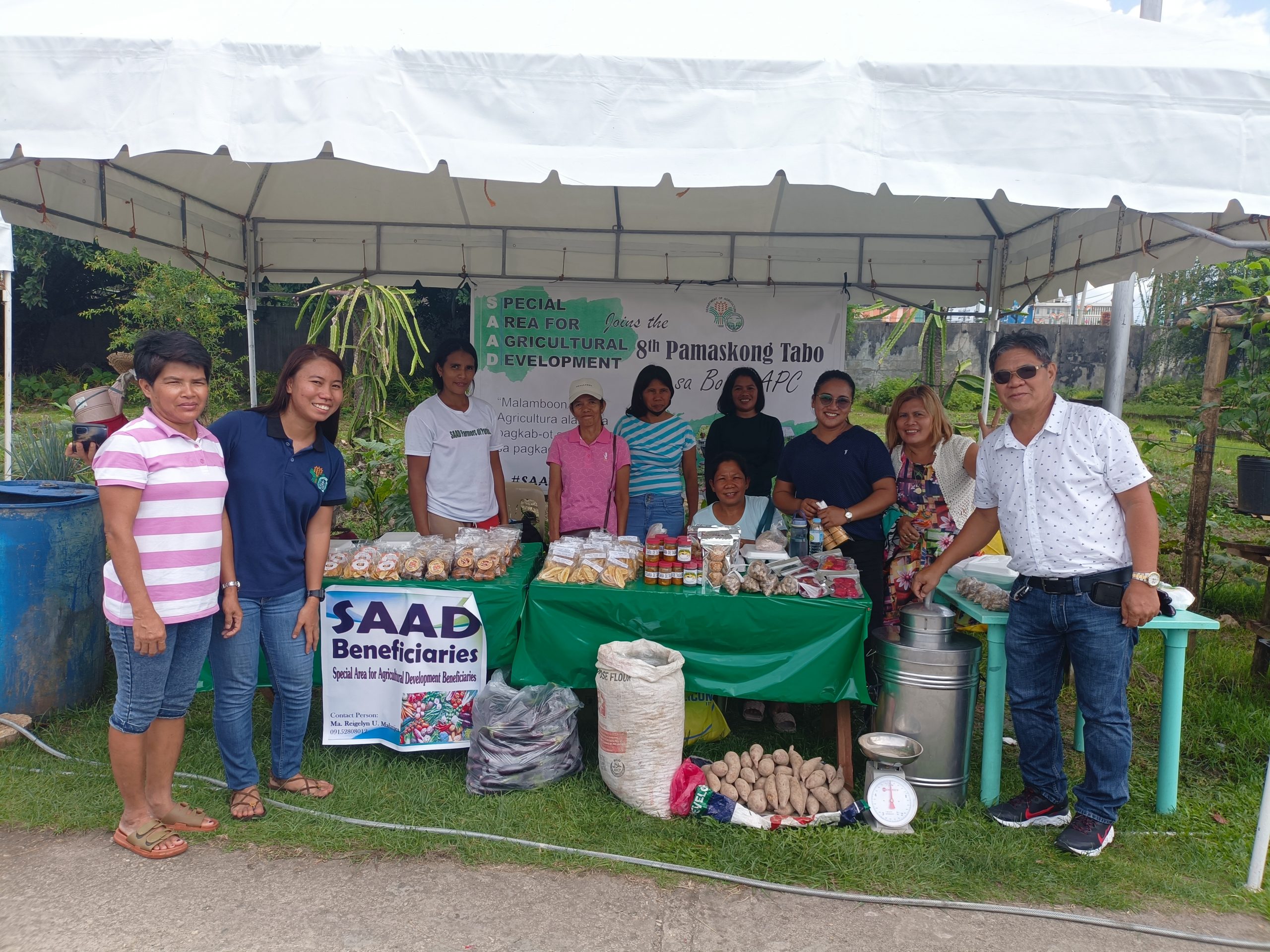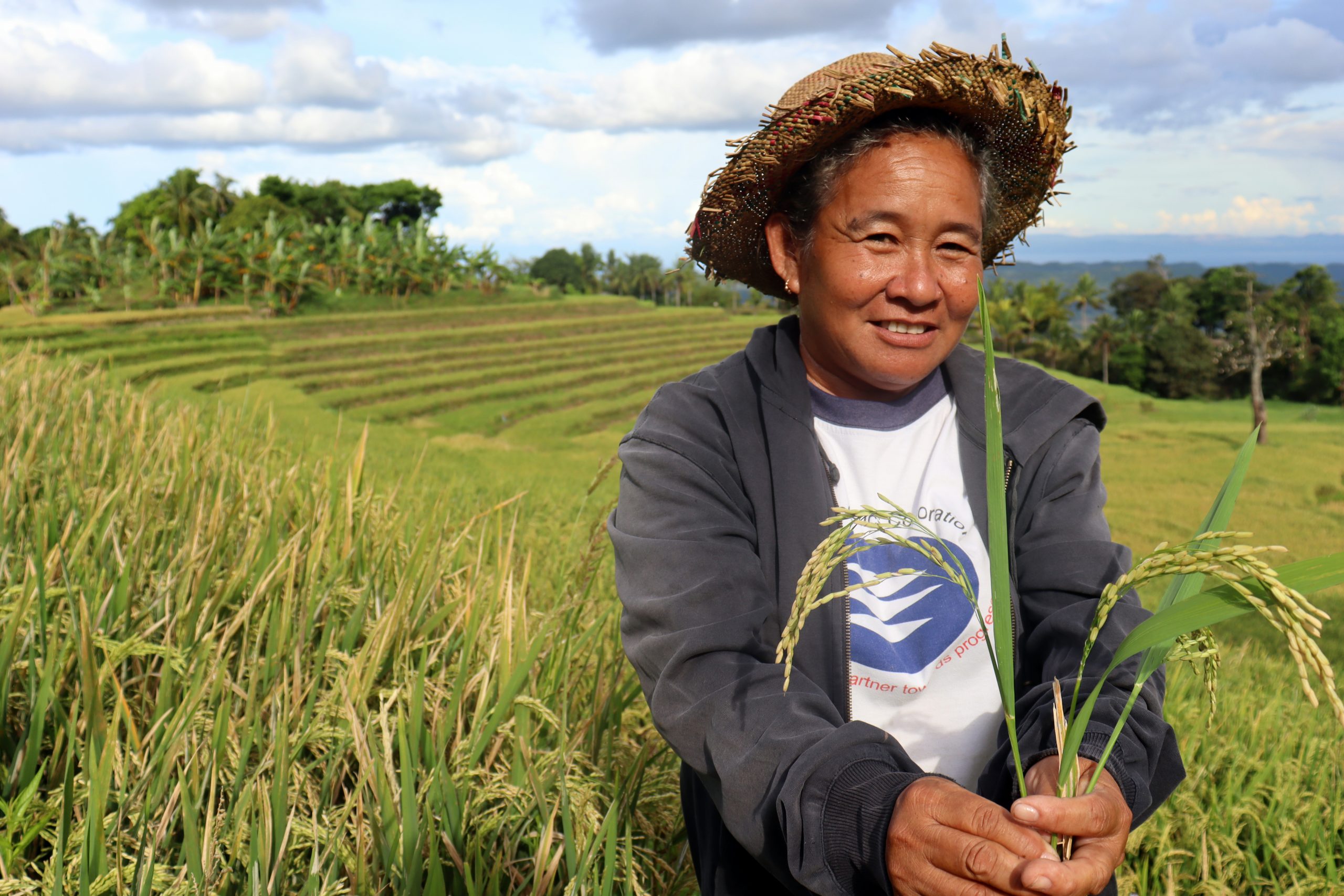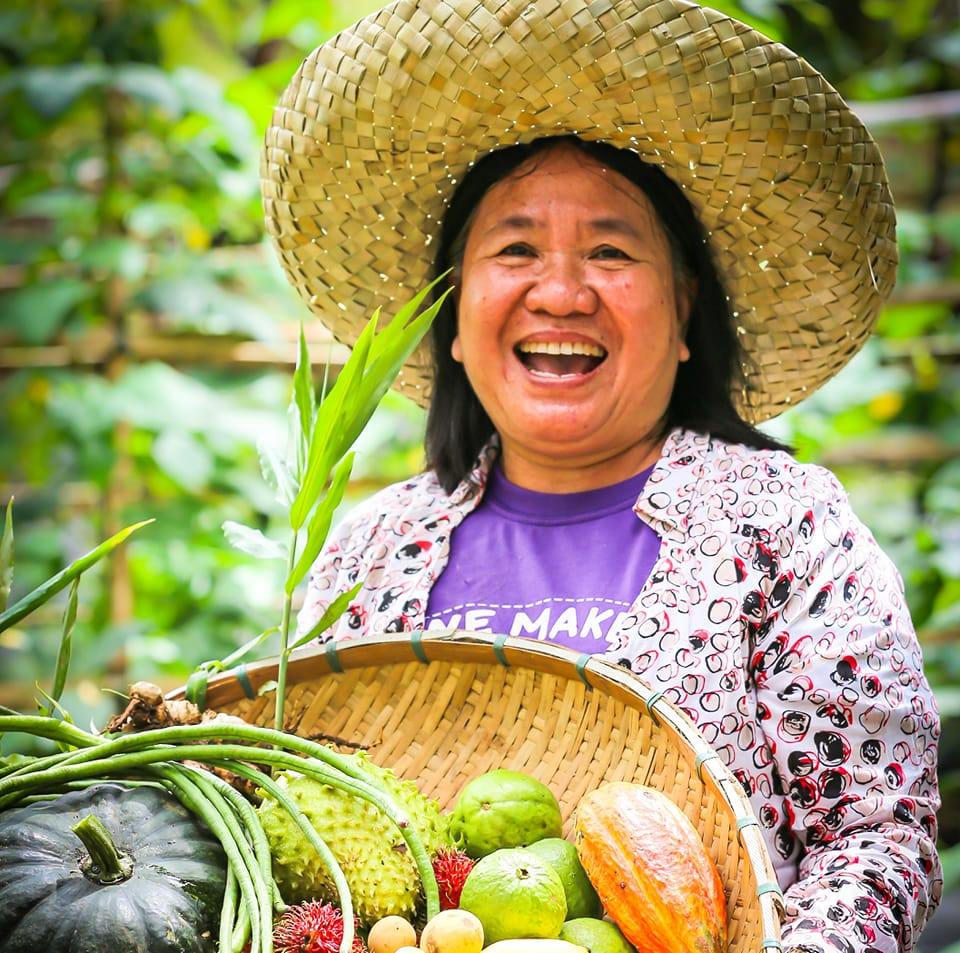APAYAO, May 11, 2022 – Simultaneous project assessments have been administered by the Department of Agriculture – Special Area for Agricultural Development (DA-SAAD) Program in Apayao to measure the present status of Farmers Associations (FA), aimed at laying out sustainability and business plan for proposed SAAD Phase-2 starting the year 2023.
These assessments were attended by participants from the SAAD-covered municipalities of Calanasan, Conner, Flora, Kabugao, Luna, Pudtol, and Sta. Marcela, in collaboration with the Local Government Units (LGUs) of the province.
Mr. Serapio Ulabu, SAAD Provincial Coordinator, stated in his message the importance of evaluating not only the progress of the project but also the realization of its goals and objectives. He added that under the program, a total of 163 livelihood projects were implemented in the province, which covered 46 people’s organizations.
“Adda kami ita dituy tapno kitaen mi manen kasanu iti capability yun akas grupo yu kin umay mi i-evaluate agitay status nan agitay proyekto nga naiteted iti organizations yu, (We are here to assess and evaluate your capability as a group and as well as the status of the projects that were given to you by the program,)” said Mr. Ulabu.
The program initially provided guidelines for data collection and measurement through a set of questions under the Project Assessment Tool. SAAD field implementers first explained the benefit of the toolkit to respondents from different areas covered.
“Etuy nga toolkit ket adda iti specialized attributes na. Nga iti kunana makita dituy iti efficiency iti pinang maninehar yu association yu kin effectiveness jay projects nga naiteted kadakayu nga grupo” (This toolkit provides some specialized attributes. It discusses the efficiency of your association management and effectiveness of livelihood projects that were given to your group), explained Mr. Ulabu.
The evaluation was conducted through focus group discussions (FGD) with chosen beneficiaries. The test was facilitated by the SAAD field implementers in partnership with the LGUs representatives. Readiness for enterprising in the FA’s projects were evaluated, as well as management and other notable practices.
The goal of the analysis is to determine whether the FAs are now ready as independent groups that can engage in enterprising, or needs further assistance from the SAAD Program.
Actual results based on FGD
The SAAD Program in Apayao started in 2017, helping 6,189 beneficiaries from 46 farmers associations in the covered seven municipalities. Based on the conducted assessment, the program prepared five FAs for enterprising. These FAs include Nagbabalayan Farmers and Fisherfolks Association in the Municipality of Kabugao; Upstream Livelihood Farmers Association (ULFA) in the Municipality of Luna; Cabatacan, Amado, San Luis, San Mariano (CASS) Farmers Association; Mula DUR-AS Farmers Association; and Lt. Macau Farmers Association in Municipality of Pudtol. Based on the toolkit, these associations revealed a high level of overall capability, functionality, and sustainability; thus capability-building interventions are the least priority.
Among the other associations, 24 FAs got a satisfactory rating, however, the assessment also showed the need to improve overall capability, specifically in project management, production and marketing, and fund management of the group.
Ms. Bernadet Balangui, Chairperson of Calaoan Farmers Association said to improve their group’s livelihood and capability as an association, they are planning to venture into commercial hog operations providing the community with organic meat options, and farm-to-table meat options.
“Plano mi kuma nga agbalin nga kooperatiba. Kayat mi agbalin to nga supplier iti meat iti baboy, pangarap mi agpatakder iti business mi nga kasla one stop meat shop dituy ili mi. Thank you SAAD, agyaman kami unay iti pinag tulong na etuy nga programa kadakami” (We plan to become a cooperative. We want to be a supplier of pork meat and we dream to build a business like a one-stop meat shop here in our municipality. Thank you, SAAD for helping us), shared Ms. Balangui.
The Calaoan Farmers Association scored among the highest in terms of leadership development capability.
Meanwhile, the assessment also showed that 13 FAs need to strengthen their overall capability in areas such as organizational management, leadership, project management, production and marketing, fund management, and good governance.
Ms. Revina G. Agpuldo, chairperson of the SLD Farmers Association shared that through the assessment, they were able to see their weaknesses that need to be addressed to improve their group’s management, and in turn, improve their livelihoods.
At the end of the assessment, four groups were evaluated to have the lowest capability that will receive further assistance by the field implementers in partnership with the LGUs to facilitate operations stability and sustainability.
As part of the assessment, a Strengths, Weaknesses, Opportunities, and Challenges (SWOC) Analysis was also utilized. The analysis revealed that the majority of the FA has camaraderie in terms of project monitoring and a strong policy on transparency. Furthermore, the SWOC Analysis also reported that all the FAs in the province acquired Good Standing from the Department of Labor and Employment (DOLE), certifying the groups had legitimacy as a worker’s association.
Mr. Ulabu further expressed happiness as associations can now be linked to other agencies for community empowerment and development like the Technical Education and Skills Development Authority (TESDA), the Department of Science and Technology (DOST), and the Department of Trade and Industry (DTI), since these associations are now accredited with DOLE.
However, one of their group’s weaknesses was their project inventory and fund management. One of the recommendations to address such weaknesses is to undergo training in finance management and organizational management to enhance their technical know-how.
Through assessment, the target associations became more aware of their goals, visions, and missions in their respective communities.
As of now, the province is now pushing for the outcome monitoring as part of the general plan for sustainability in coordination with the Regional Program Management Support Office (RPMSO). ###
Writer: Kathleen Faye B. Agonoy, Information officer I, SAAD Apayao
